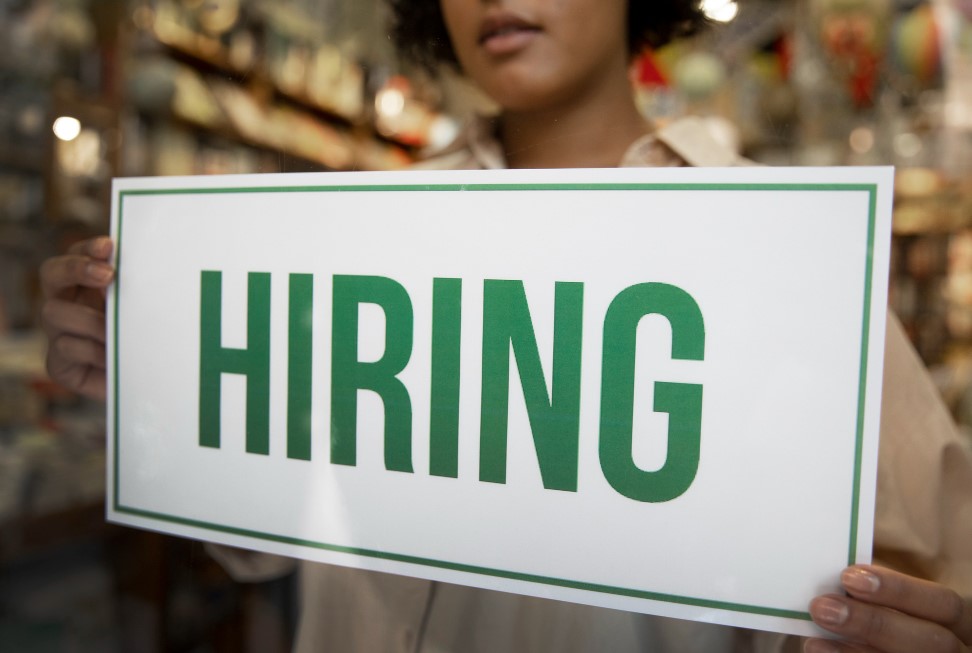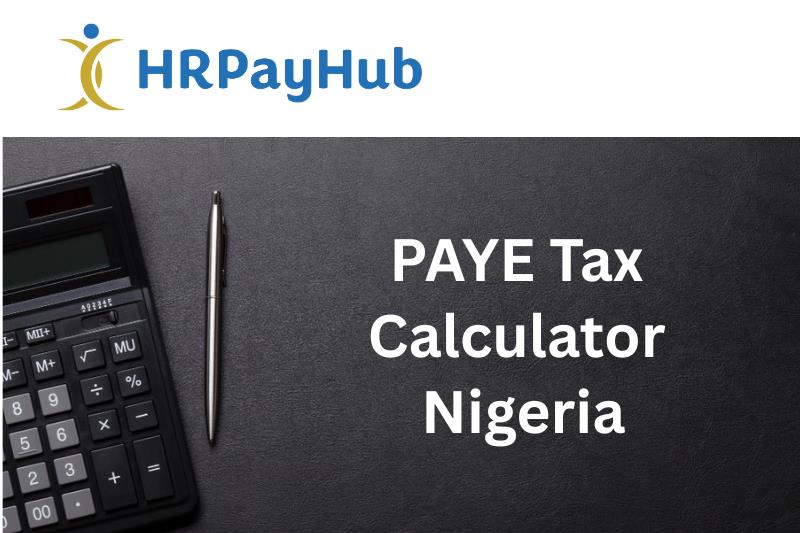
Discover how Nigerian employees’ expectations are shifting in 2025, from pay to flexibility, learning, and wellbeing, and how job-seekers can stand out in this
“Can Employees really be satisfied?” That’s the half-joking, half-worried question whispered in HR offices these days. But beneath the humour lies a serious truth: the Nigerian employee of 2025 is not the same as that of 2015. Nigerian employees today want more; more fairness, more transparency, more balance. The want to know that they are valued and always taken into consideration. Gone are the days when a stable paycheck alone could keep talent loyal. In 2025, job-seekers across Nigeria are making bold choices: resigning from uninspiring jobs, prioritising mental health, seeking hybrid roles, and negotiating benefits that match global standards.
Back then, the dream job often meant a secure office role with a monthly salary, transport allowance, and the status of a blue-chip company badge. Today, the same workforce demands flexibility, visibility, professional growth, and mental wellbeing, plus the tools and technology that make modern work smoother.
Across career fairs, LinkedIn posts, and platforms like DelonJobs.com, a new pattern has emerged. Nigerian job-seekers are no longer chasing titles alone; they are chasing experience. They want employers that respect their time, pay them fairly, and treat them like partners, not headcount.
This article explores why expectations are changing, what employees want now, how employers are adapting, and what job-seekers can do to stay relevant. The shift, much more than perks, is about a deeper cultural transformation redefining what it means to work and to thrive in Nigeria.
From the Great Resignation to the Great Realignment
When global analysts coined the term Great Resignation in 2021, many thought it was a Western problem. But by 2023, Nigerian professionals began making similar moves, quietly quitting toxic workplaces, leaving for freelance contracts, or joining startups offering remote freedom. The trend has now evolved into what experts call the Great Realignment: employees are not rejecting work; they are demanding better work.
Three forces drive this:
a) Remote and Hybrid Work Normalisation
COVID-19 proved that many jobs don’t require physical presence. Developers in Ibadan, marketers in Abuja, and customer-service agents in Enugu now work for global firms entirely online. Flexibility has become a top-five factor in job selection. Even Nigerian banks and telcos, who were traditionally strict, now allow hybrid roles, recognising that talent retention depends on balance.
b) Digital Transformation and Skills Acceleration
The Fourth Industrial Revolution is hitting Africa with full force. AI, automation, and data analytics are changing how companies operate. Employees fear redundancy if they don’t upgrade their skills, which is why job-seekers prefer companies offering paid learning programmes or access to upskilling platforms such as Delon Academy, Coursera, and Udemy. For broader global context on skills shifts, see the World Economic Forum’s Future of Jobs Report 2025 summary page
c) Purpose over Prestige
Younger professionals, especially Gen Z, prioritise meaningful work. Many say they would choose a startup solving real problems; fintech inclusion, healthtech, green energy an a lot more fulfilling careers, over a high-paying but soulless corporation. They want work that aligns with values, not vanity.
The ripple effect: Nigerian HR teams are rewriting job descriptions, and job-seekers are rewriting what success means.
What Nigerian Employees Want in 2025
Careful research was done and an analysis of thousands of job applications and feedback from candidates across 2024–2025. The findings mirror global trends but carry a Nigerian flavour, rooted in economic realities, cultural expectations, and digital exposure.
1. Competitive and Transparent Pay
Inflation has made financial transparency crucial. Employees want to understand their earnings: how tax, pension, and insurance deductions are calculated and why net pay fluctuates. Workers are increasingly wary of hidden deductions or delayed remittances.
Organisations using automated payroll systems like HRPayHub.com now enjoy better trust because employees can log in, view payslips, and confirm statutory payments. If you’re an employer evaluating systems, HRPayHub’s explainer on modern HR tech for Nigerian businesses is a helpful primer
2. Flexibility and Work–Life Balance
Traffic in Lagos or Port Harcourt can swallow four hours of a person’s day. Hybrid or remote arrangements have therefore become not a luxury but a necessity. Job listings on DelonJobs.com labelled remote or hybrid consistently attract higher application numbers.
3. Learning and Development Opportunities
The best Nigerian employees are restless learners. They seek continuous development; technical, managerial, or creative. Many applicants now ask employers about training budgets before accepting offers. Companies that subsidise certification exams or sponsor online courses enjoy higher retention. For global L&D trends you can cite in your proposals, consult the LinkedIn Learning 2025 Workplace Learning Report.
Learning is also about identity: when employees grow, they feel valued. That emotional return matters as much as a salary increment.
4. Mental-Health and Wellbeing Support
Mental health, once taboo, has entered mainstream HR. Forward-thinking companies partner with counsellors or integrate Employee Assistance Programmes (EAPs) into benefits, because many employees now quit their jobs due to emotional breakdown. Younger professionals expect empathy, not endurance. For leadership-level arguments you can share internally, Deloitte’s Global Human Capital Trends 2025 frames this as part of “reclaiming capacity” for human performance overview.
5. Growth Path and Career Clarity
One of the loudest complaints in traditional companies is stagnation. Employees crave transparency on promotions and progression criteria. Modern HR teams now publish career roadmaps; what it takes to move from Analyst → Senior → Manager. Without that clarity, ambitious staff leave within 18 months.
The Forces Shaping These Expectations
Economic Pressures
The country’s cost-of-living realities force professionals to demand real compensation, not token perks. Pay delays or opaque deductions trigger resignations. Many candidates now estimate take-home pay upfront and expect employer transparency.
Global Mobility and Remote Jobs
Platforms enabling cross-border work let Nigerians compete and earn globally. This exposure recalibrates local expectations. If global firms offer flexibility and transparency, why can’t local ones?
Technology and AI
Generative AI tools have made digital literacy essential. Employees who learn automation thrive; those who resist fall behind. Consequently, workers expect employers to sponsor AI-readiness training.
Generational Shift
Gen Z’s entry into the workforce amplifies these trends. They question hierarchy, demand purpose, and communicate openly about burnout. Infact, they speak up and speak out, they are very verbal about how they feel and what they think should be done. Employers must therefore modernise communication; less command-and-control, more dialogue.
The Revised National Employment Policy 2025 encourages fair standards, equal opportunity, and youth employment programmes. That public awareness, together with global discourse like WEF’s Future of Jobs coverage, elevates expectations.
What Job-Seekers Must Do Differently in 2025
The responsibility isn’t one-sided. Nigerian job-seekers must match elevated expectations with elevated professionalism.
a) Showcase Skills, Not Just Job Titles
Recruiters scan portfolios faster than CVs. A front-end developer with live project links stands out more than one with vague “five years’ experience.” Build a digital trail; GitHub, Behance, Medium, or short demo videos, and add them to your Delon Jobs profile.
b) Commit to Lifelong Learning
Don’t wait for your employer. Programmes via Delon Academy, Google Digital Garage, or vendor certificates (AWS, Microsoft, Cisco) can lift you quickly. For ammunition in negotiations, share highlights from LinkedIn’s Workplace Learning Report 2025 overview.
c) Research Employers Thoroughly
Before applying, review an employer’s culture. Check LinkedIn pages, employee testimonials, and benefits pages. Ask recruiters specific questions: Do you offer hybrid work? How often are promotions reviewed?
d) Negotiate Smartly
Salary is one dimension; benefits matter too. You can trade a slightly lower pay for remote flexibility or funded certifications. Employers respect candidates who negotiate with clarity, ground your case in skills and outcomes.
e) Build a Personal Brand
Update LinkedIn weekly, share insights, comment on industry topics. Visibility attracts recruiters. Some Delon Jobs placements come from employers who first discovered candidates via social posts, then invited them to apply.
Real-World Examples of Nigerian Companies Getting It Right
Flutterwave and Interswitch: strong performance frameworks, clear growth paths, and competitive benefits. Coverage of Nigerian startup work cultures and expectations appears often on Techpoint Africa.
Andela: built around skill-based global opportunities and continuous learning.
Delon Apps: through Delon Jobs, Delon Academy, and HRPayHub, integrates hiring, upskilling, and payroll automation, aligning with exactly what talent expects in 2025.
These organisations show that local firms can meet world-class expectations with intentional design.
Three Critical Ways HR will be Redefined
1. Skills as the New Currency
Degrees will still open doors, but verified competence will keep them open. Credential-verification technologies and skills-based job architectures will grow.
2. Technology-Driven HR
AI tools will automate screening, payroll, and engagement analytics. HR teams will transition from administrative hubs to strategic partners, interpreting data, not pushing papers. If you need to convince internal stakeholders, Deloitte’s Human Capital Trends 2025 provides C-suite-level framing.
3. Employee Experience as a Business Metric
Just as companies measure customer satisfaction, they’ll track employee experience (EX). Retention rates, wellness scores, and engagement indices will influence strategic decisions. Nigeria’s young, tech-savvy population positions it perfectly for this transformation, if businesses can invest in infrastructure and mindset.
The Government and Ecosystem Connection
Policy, education, and private innovation must align.
Government: expand digital-skills funding and enforce labour transparency to reduce under-payment and wage theft.
Universities: integrate employability training and entrepreneurship modules.
Private Sector: continue mentorship programmes linking classroom theory with workplace practice.
Collaboration among these pillars will future-proof Nigeria’s workforce.
The Emotional Shift: From Survival to Significance
Ask a Nigerian employee in 2010 why they worked, and most would say “to survive.” Ask in 2025, and many will say “to make impact.” That’s profound.
Work is about becoming and earning, but one is now of more importance than the other. Employees want to grow skills, earn respect, and contribute meaningfully. Employers who nurture that will enjoy the ultimate retention strategy: loyalty born from pride.
What Recruiters Are Saying
Recruiters across SMEs and large corporations report the same signals: candidates now ask about hybrid work in first interviews, requests for training budgets are rising, and salary transparency attracts better-quality applicants.
Lessons from Global Trends
Across the globe, similar forces play out. Microsoft, Deloitte, LinkedIn, and WEF all point to a convergence: flexibility, skills, and transparency. For a newsy snapshot of how AI proficiency is becoming table-stakes at leading firms, The Washington Post provides a recent workplace trend piece here.
Nigeria mirrors these patterns, with the difference of context: employees balance economic volatility with global ambition. That duality makes their expectations both practical and aspirational.
Practical Tips for Employers
- Conduct regular employee surveys to understand shifting priorities.
- Publish transparent pay bands; it signals fairness and reduces negotiation friction.
- Offer learning stipends or certification bonuses to align growth with rewards.
- Adopt digital HR systems like HRPayHub to automate error-prone processes and improve trust.
- Promote mental-health awareness with real support, not slogans.
- Recognise achievements; celebrate both performance and improvement.
Each step costs less than replacing top talent.
Practical Tips for Job-Seekers
- Update your CV quarterly to reflect new tools and outcomes.
- Optimise for keywords like “remote-ready,” “AI-driven analytics,” or “growth mindset.”
- Build an online portfolio that lets employers see results.
- Engage with career communities; join webinars and resources on Delon Jobs blog.
- Set realistic expectations; choose compounds of learning and salary, not salary alone.
Proactive candidates are the first to receive interview calls.
The Nigerian Advantage
Despite challenges; power, inflation, bureaucracy, Nigeria’s youth demographic is a powerhouse. With rising internet penetration and a strong entrepreneurial culture, the country is positioned for a leap.
As global companies look for emerging-market talent, Nigerian professionals who adapt quickly will lead Africa’s knowledge economy. Platforms like DelonJobs.com will remain the pipeline connecting them to global opportunities.
The New Employer–Employee Contract
By 2025, the world of work in Nigeria is no longer defined by hierarchy but by harmony. Employers provide clarity, technology, and compassion; employees bring skills, adaptability, and creativity. Those who cling to outdated systems; manual payrolls, rigid office policies, opaque promotions, will lose relevance. Those who embrace transparency, flexibility, and continuous learning will thrive. For job-seekers, this is the era of empowerment. You have more information, tools, and mobility than any generation before you. Use them wisely. Build skills, choose wisely, and grow intentionally.
When you’re ready for your next opportunity, explore roles on DelonJobs.com, where Nigeria’s most ambitious professionals connect with the employers shaping the future of work.



















